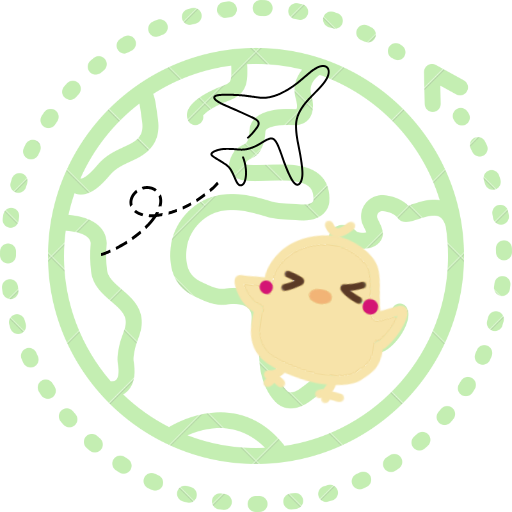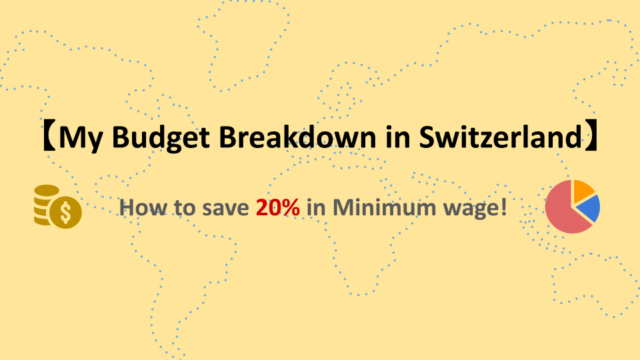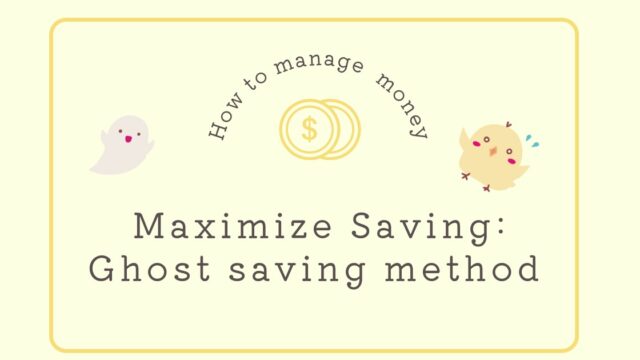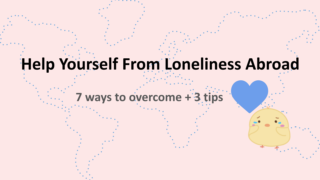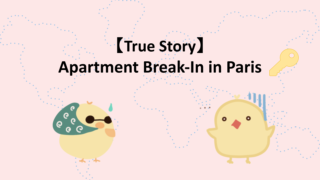How To Live Budget-Friendly Abroad: Recommendation For Being Easy-Minimalist
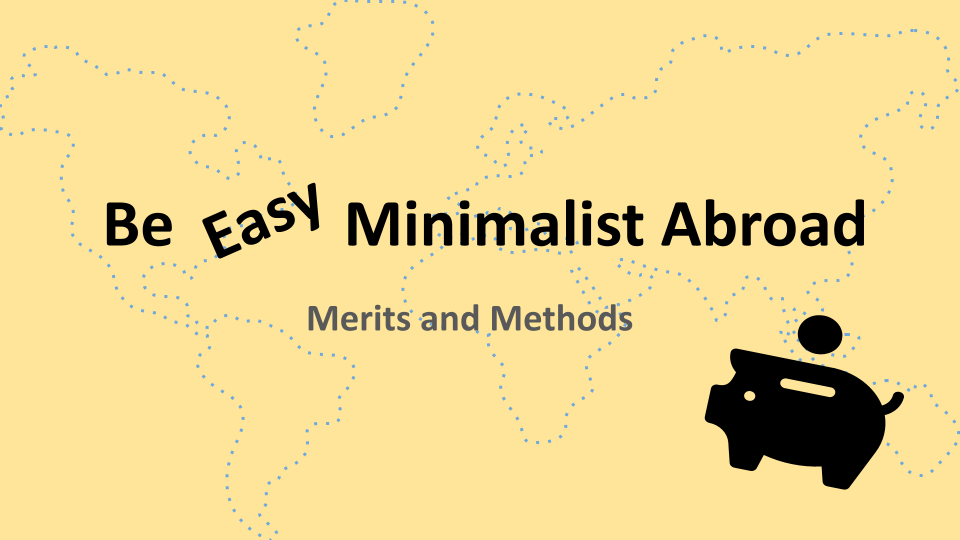
This post is 10 minutes read time.
Have you ever dreamed of living abroad but felt it was too expensive? Or perhaps you’re already living abroad and looking for ways to cut costs?
In either case, adopting a minimalist lifestyle can make a big difference. Minimalism helps you live simply and economically while focusing on what truly matters.
As someone who has lived in six different homes across two countries in the past four years, I’ll share practical tips and strategies to embrace minimalism while living abroad. By the end of this post, you’ll know how to reduce your living expenses and feel lighter and freer—ready to go wherever life takes you!
- What is a Minimalist?
- Why Be a Minimalist While Living Abroad?
- How to Practice Minimalism Abroad
1. What is a Minimalist?
There’s a lot of definition of Minimalist, here, I would like to say as following.
Minimalism is about keeping what truly matters and letting go of the rest so you can focus on what brings value and joy to your life.
Minimalism helps you focus on what you value most. For example:
- Can you pick out your favorite outfit in your closet instantly?
- Do you have one photograph that holds deep meaning for you?
If you struggle to answer these questions, it’s likely that clutter is clouding your sense of what matters. By letting go of excess and focusing on essentials, you can upgrade your lifestyle and free yourself from the influence of advertisements and consumer culture.
2. Why Be a Minimalist While Living Abroad?
Practical Benefits
Easier Accommodation Options
When you own fewer belongings, it’s easier to find a place to live. With just one or two suitcases, you can choose from options like small apartments, shared housing, or even temporary rentals.
For example, when moving to a new country, you might want to inspect accommodations in person before committing. If you travel light, relocating between temporary housing is much less stressful.
Lower Living Costs
Renting a smaller place is often cheaper. Since rent is usually the largest expense, reducing your space needs can significantly cut costs.
Moving abroad also comes with initial expenses like visa fees, deposits, and insurance. By owning less, you save money on shipping or storage. In contrast, owning a lot of stuff may force you to rent a larger, more expensive apartment.
Time Savings
Mainly, I focused on the moving period until now, Here, I would like to talk after settle down.
Once you’ve settled, minimalism saves you time:
- Cleaning a simple, uncluttered space is quicker and easier.
- Keeping track of your belongings becomes effortless, reducing the time spent searching for items.
You can use this extra time for more valuable activities, like learning the local language or exploring your new home😎
Mental Benefits
1. Improve Focus
Every day, we make around 35,000 decisions—a phenomenon known as “decision fatigue.”(Stewart AF, et all., 2012) According to research, this can lead to poor self-control and irrational choices.
Minimalism reduces the number of decisions you need to make. For example, if you own only a few outfits that you love, you don’t waste time deciding what to wear. Also, if you have only valued favorite to wear, you can feel good everyday with your favorite clothes👗🤗.
Attention! If you are really into fashion and huge value for you, you can keep it and reduce other things which less value for you.
2. Peace of Mind
You might think owning a lot makes you feel secure, but it can actually increase anxiety. It’s impossible to own everything you might ever need, and advertisements constantly push new products.
Minimalism frees you from this cycle. By reducing your possessions, you feel lighter, more mobile, and more in control of your life.
3. Feel Lighter in Your Mind
You might think that owning fewer things would make you feel uneasy, but the opposite is often true. If you rely on material possessions for a sense of security, your anxiety may never end—it’s impossible to own everything, and advertisements constantly fuel our desire for more.
However, when you reduce your belongings and keep only what truly matters, you’ll feel a significant weight lifted off your shoulders. The freedom that comes with minimalism allows you to focus on what’s important and gives you the confidence to go wherever life takes you.
3. How to Practice Minimalism Abroad?
Step 1: Identify What Matters
Ask yourself: What truly brings you joy and value? If you don’t have a clear answer, spend time reflecting on what’s most important to you.
Step.2 Declutter
Start by removing obvious clutter:
- Expired food and empty bottles
- Clothes you haven’t worn in years
- Items you own in multiples
Use these simple rules:
- If you haven’t used something in over a year, let it go.
- Apply the “One In, One Out” rule—whenever you bring in something new, discard something old.
Step 3. Not try to be creative for storage!
Don’t buy extra storage to keep things you don’t use. Instead, focus on reducing your belongings to fit your space naturally.
Step 4. Sell or Donate
Discarding items still enough good state feel guilty also not good for environment of course. For items in good condition, consider selling them through platforms like Mercari or eBay. You can also donate to local charities or community groups.
Step 5. Handle Sentimental Items – Let’s take photo!
Letters from your best friends, presents from your family, or a message board from your previous colleagues—these items are the most challenging to let go of. You might imagine that people will think you’re cold-hearted if you discard them, or you may fear a situation where your friend asks, “How’s the gift I gave you three years ago?”
But don’t worry—people rarely ask such questions, because deep down, we all share the same struggle. It’s natural to feel guilty about discarding sentimental items, and that’s why these are often the hardest things to part with.
In this case, let’s take a different approach: take a photo of the item! By capturing its memory and organizing the pictures in a well-labeled folder, you can revisit those heartwarming memories anytime. This way, you’re cherishing the feelings and stories behind the item, not just the material object itself.
Imagine holding on to items that end up buried in messy storage, covered in dust, and forgotten. Is that really honoring their meaning? The true value of a gift lies in the thought and emotions of the person who gave it, not in the object itself.
When you move to a new place, it’s often impossible to bring everything with you. Take photos, create a “Memories” folder, and say goodbye to the physical object with gratitude. Whenever you revisit the folder, those memories will feel as vivid as ever. And don’t worry—people who care about you know your kind heart and understand your choices.
Step 6. Use Services When Needed
For seasonal or infrequently used items like skis or surfboards, consider renting instead of owning. Unless you’re a professional or frequent user, renting can save space and money.
Bonus Tips for Budget-Friendly Living Abroad
1. Eat Locally
Locally produced, seasonal foods are often cheaper and fresher than imported options. While you might miss food from home, discovering local alternatives can be a fun and budget-friendly adventure.
2. Use Public Transport
Cars are expensive to own and maintain, especially abroad. If your city has good public transport, use it! Walking or cycling can also save you money and keep you fit.
- Minimalism isn’t about sacrifice but focusing on what truly matters.
- Practical benefits: Easier accommodation, lower living cost, and time saving.
- Mental benefits: Reduces decision fatigue, anxiety, and lifts mental weight and provides freedom.
- Reflect on what truly brings value and joy to your life when you reduce your belongings.
- Apply the “One In, One Out” rule when you buy new things.
- Take photos of sentimental items to preserve their memories digitally.
- Rent infrequently used items like sports equipment instead of owning them.
